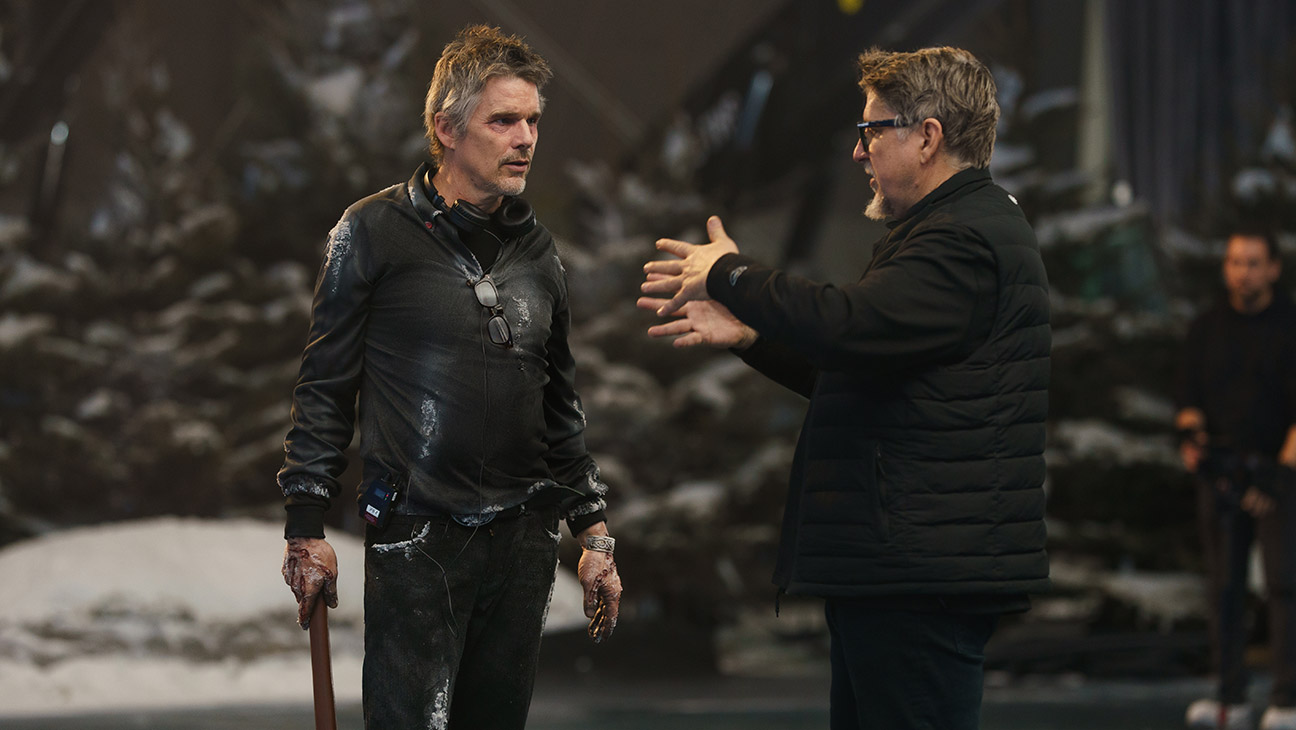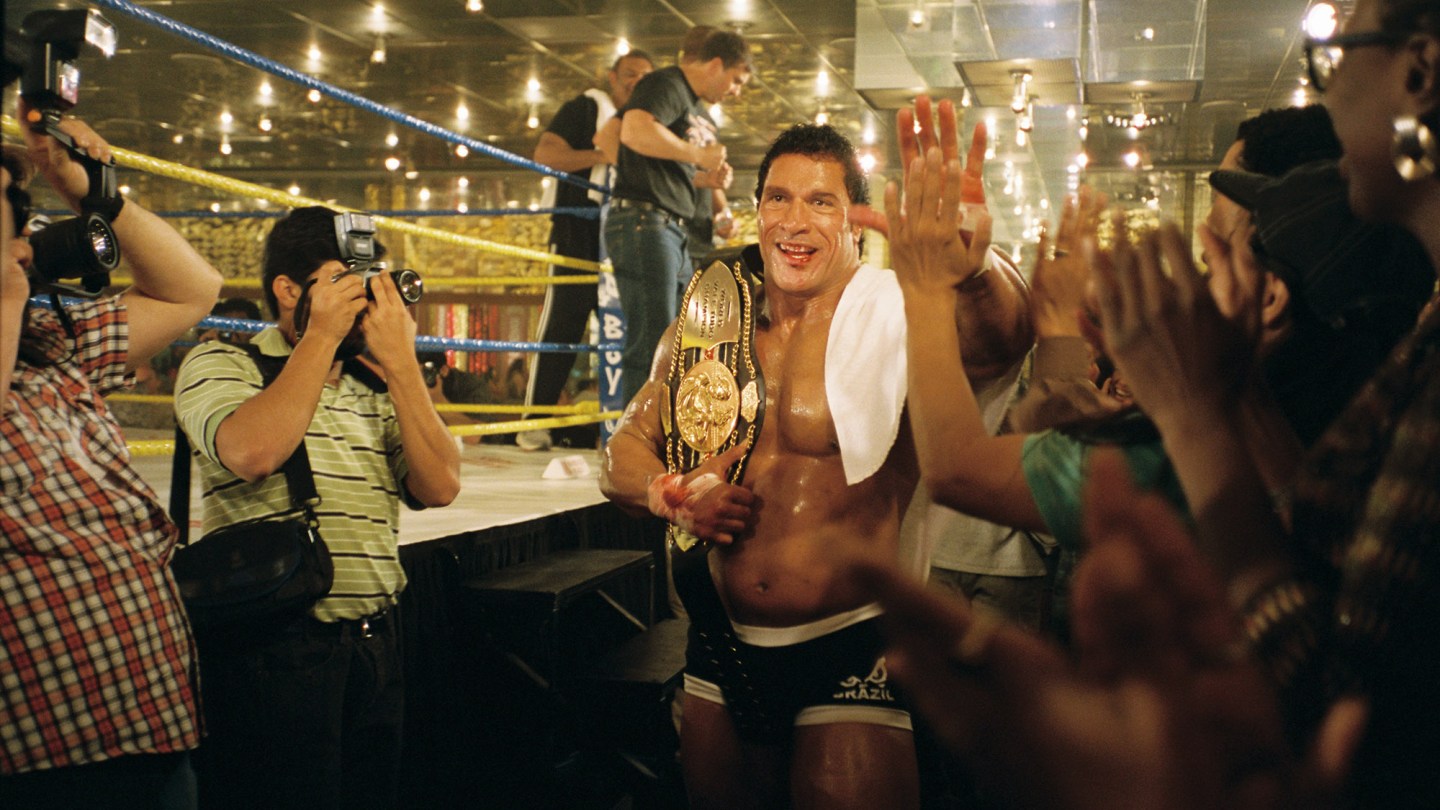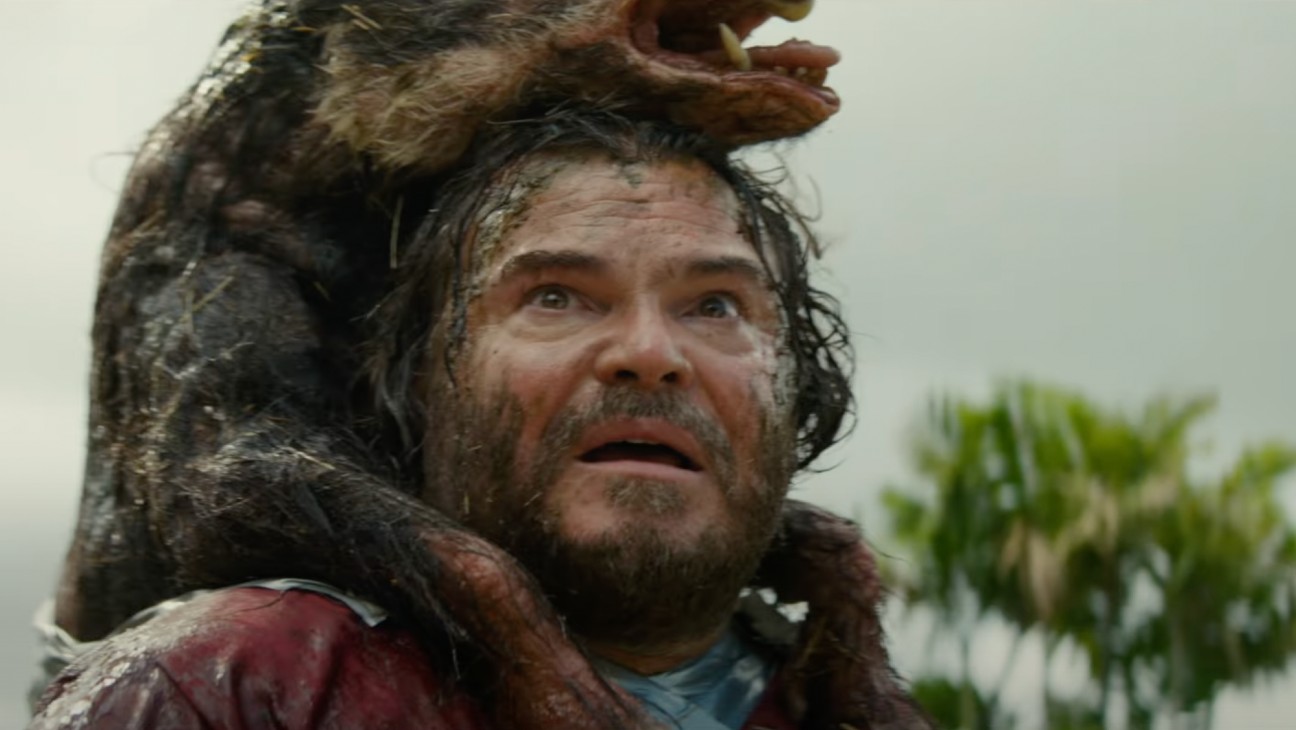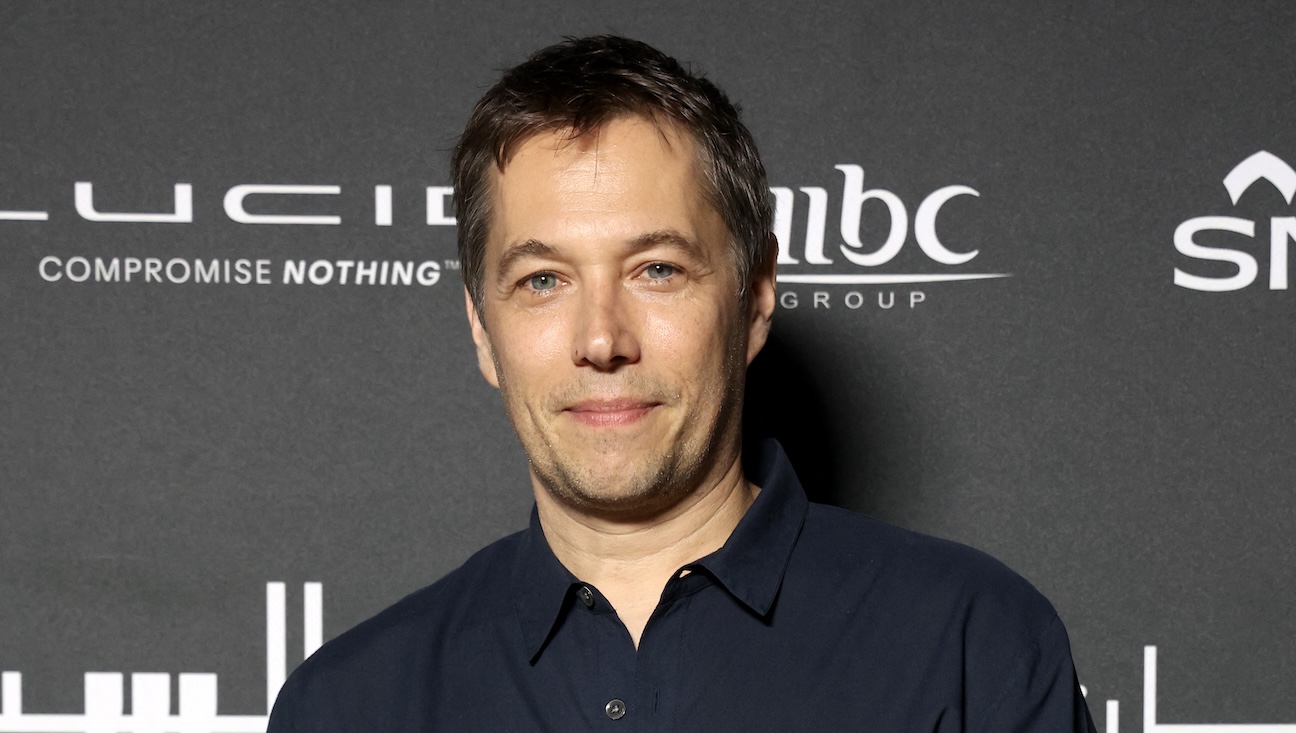Scott Derrickson has finally pressed the redial button.
Until now, the filmmaker had never made a sequel to one of his own films. And despite The Black Phone being one of 2022’s most profitable pictures, he still wasn’t looking to helm another chapter. After all, he’d completely exhausted Joel Hill’s short story of the same name, and his 13-year-old hero, Finney Blake (Mason Thames), had slayed the child-abducting serial killer known as The Grabber (Ethan Hawke). But that all changed when Hill sent Derrickson a tantalizing pitch via email for Black Phone 2.
“[Joe Hill] got the ball rolling by saying, ‘The Grabber calls Finn from hell.’ And I was like, ‘Oh, The Grabber is on the other line. Sure, that’s great, and it opens up a lot of possibilities,’” Derrickson tells The Hollywood Reporter in support of Black Phone 2’s Oct.17 theatrical release.
The other story point that got Derrickson’s gears turning is really a two-part revelation in the middle of the movie. The specific details are sectioned off in the interview below, but the North Denver native knew he needed a compelling swerve to bridge the wider story being told across two Black Phone installments.
“That idea was surprising to me and surprisingly interesting to me. It’s a big enough reveal in a movie that doesn’t have a lot of twists and turns. That’s the big twist, really, if there is one,” Derrickson shares. “And knowing that we were going to build toward that in some form, it gave us an emotional spinal cord for the movie.”
Derrickson was now committed to making Black Phone 2, but he still exercised restraint. Instead of striking while the iron was hot like his studio partners hoped, he opted to make an action romance called The Gorge first so that his two young stars, Thames and Madeleine McGraw, would be high schoolers by the time he finished. The timing would yield a high school coming-of-age movie as a follow-up to his middle school-set predecessor.
Black Phone 2‘s story resumes four years later in 1982, and while Finney, now Finn, is relatively famous for being the kid who killed The Grabber, it’s brought him a lot of unwanted attention that he has to resolve with his fists. Psychologically, he’s an even bigger mess, and he routinely numbs himself with some of North Denver’s finest low-grade cannabis. Meanwhile, Gwen (McGraw) is dealing with her own issues. She’s being bullied at school due to the fact her psychic gifts that helped solve The Grabber case are no longer a secret. She’s also sleepwalking and having vivid dreams about The Grabber and a winter camp called Alpine Lake.
Ultimately, Finn and Gwen take a trip to Alpine Lake to investigate the camp, and that’s where The Grabber’s malevolent spirit seeks his revenge. But instead of prioritizing Finn, he targets Gwen in her dreams as payback for Finn’s role in the death of his idiot brother, Max (James Ransone). The nature of this plot effectively turns McGraw into the de facto lead actor.
“In this movie, the roles are really reversed. [Gwen’s] the one in peril, and [Finn] spends his time trying to be her protector,” Derrickson says. “What Gwen is dealing with is much more complicated, so it needed to be her story in order for that to play out in any kind of meaningful way.”
Below, during a recent conversation with THR, Derrickson also discusses whether he intends to make a college-era trilogy capper, before diving into his first feature collaboration with his composer son, Atticus Derrickson.
***
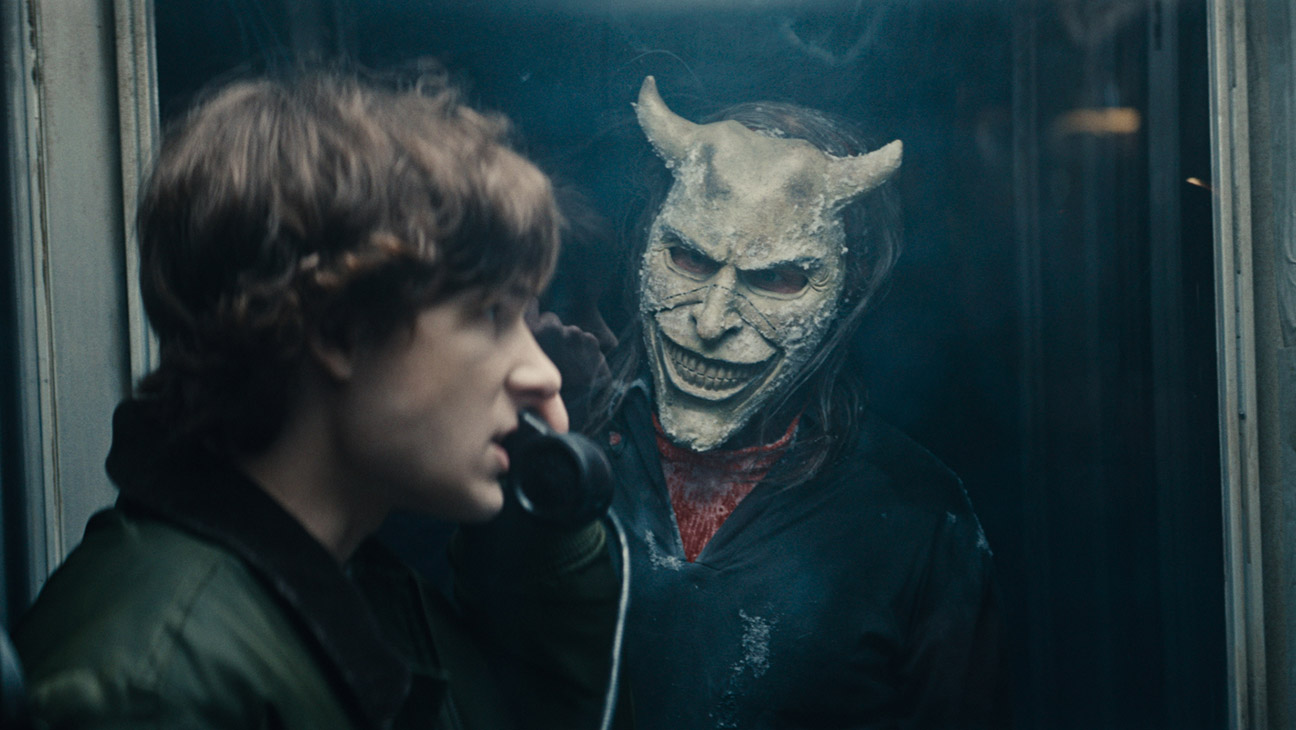
You weren’t planning to make a sequel until Joe Hill emailed you a follow-up idea to his original source material.
That’s right.
I assumed he pitched The Grabber (Ethan Hawke) going after Gwen (Madeleine McGraw) in her dreams, but that wasn’t his starting point, was it?
No, it wasn’t. He had a much more elaborate pitch, most of which I didn’t use. Like you said, I wasn’t thinking about a sequel at all. I didn’t feel any obligation to do one, and I don’t know that I was even interested in doing one. But he got the ball rolling by saying, “The Grabber calls Finn from hell.” And I was like, “Oh, The Grabber is on the other line. Sure, that’s great, and it opens up a lot of possibilities.”
The studio was asking me to make a sequel right away, but I realized that if I waited a couple of years and let these kids get older, I could make a high school horror film [to follow up the middle school horror film]. So it became really interesting to me to see these characters, namely Finn and Gwen, four years later and to see who they had become in high school and in the wake of the first film’s events.
[Warning: Derrickson then briefly veered into spoiler territory by revealing the specific idea that truly set the sequel in motion for him, so it’s been applied to the following question/answer.]You deepened the lore involving the characters. Was there a lot of deliberation over these revelations?
This is spoiler-y, but a starting point that really got my mind going was The Grabber’s role in the life and death of Finn and Gwen’s mother. That idea was surprising to me and surprisingly interesting to me. It got me thinking about story possibilities in a way that I couldn’t really stop. Having finished it now, it’s a big enough reveal in a movie that doesn’t have a lot of twists and turns. That’s the big twist, really, if there is one. And knowing that we were going to build toward that in some form, it gave us an emotional spinal cord for the movie. The most difficult thing in the process of constructing the rest of the skeleton on that spinal cord was how to involve The Grabber and bring him back from the dead in a frightening way and in the lives of these kids. So it took a lot of time and effort and discussion to figure out how we were going to do that.
[The brief spoiler section has now concluded.]
If The Black Phone is a middle school movie and Black Phone 2 is a high school movie, does that mean you are open to Black Phone: The College Years?
(Laughs.) You never know. I’ve really committed myself to doing the same thing that I did on the first one, so I haven’t spent any time thinking about a third movie. I think it’s important not to do that. Once you’re trying to plot out sequels and expand into a cinematic universe, you’re inevitably, by definition, limiting story possibilities. So I just haven’t thought about it. I really wanted to make this movie, and my goal was to make a better movie than the first one. So I haven’t considered what the franchise could be, and it’s just not something that’s really entered my mind yet.
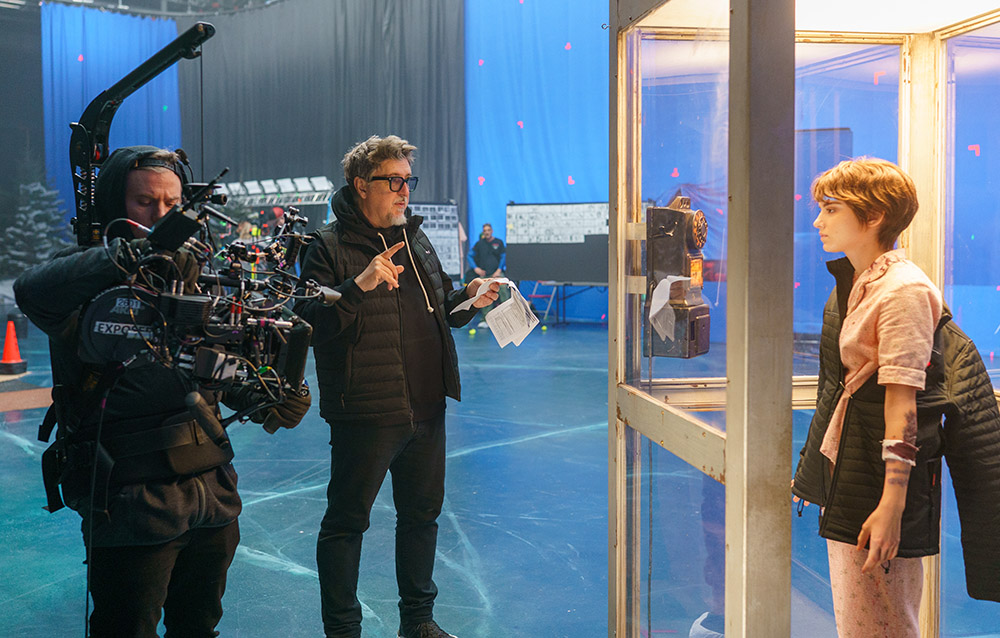
You delayed the filming of the first movie to accommodate Madeleine McGraw’s Disney show because you couldn’t stomach the idea of anyone else playing Gwen. And now Black Phone 2 is essentially her movie. Mason Thames still has a great part, don’t get me wrong, but was he a good sport about Maddy being showcased on this go-round?
Absolutely. He understood that it’s inevitably a two-handed movie that’s about their relationship. The film’s primary relationship is between Finn and Gwen. But he also really liked the fact that in the first movie, Gwen was putting forth her best efforts to try to find Finn. She was putting herself at risk in trying to help him, and in that respect, she was his champion and protector. But in this movie, the roles are really reversed. She’s the one in peril, and he spends his time trying to be her protector. So I think he liked that, and it gave him the kind of action and scenes to perform that supported the arc that I designed for him.
The things that Finn has to get past and deal with in the course of the movie are relatively simple, and what Gwen is dealing with is much more complicated in terms of her mother’s death and inheriting her spiritual gift and feeling like an outsider who’s awkward, crazy and freakish. So it needed to be her story in order for that to play out in any kind of meaningful way.
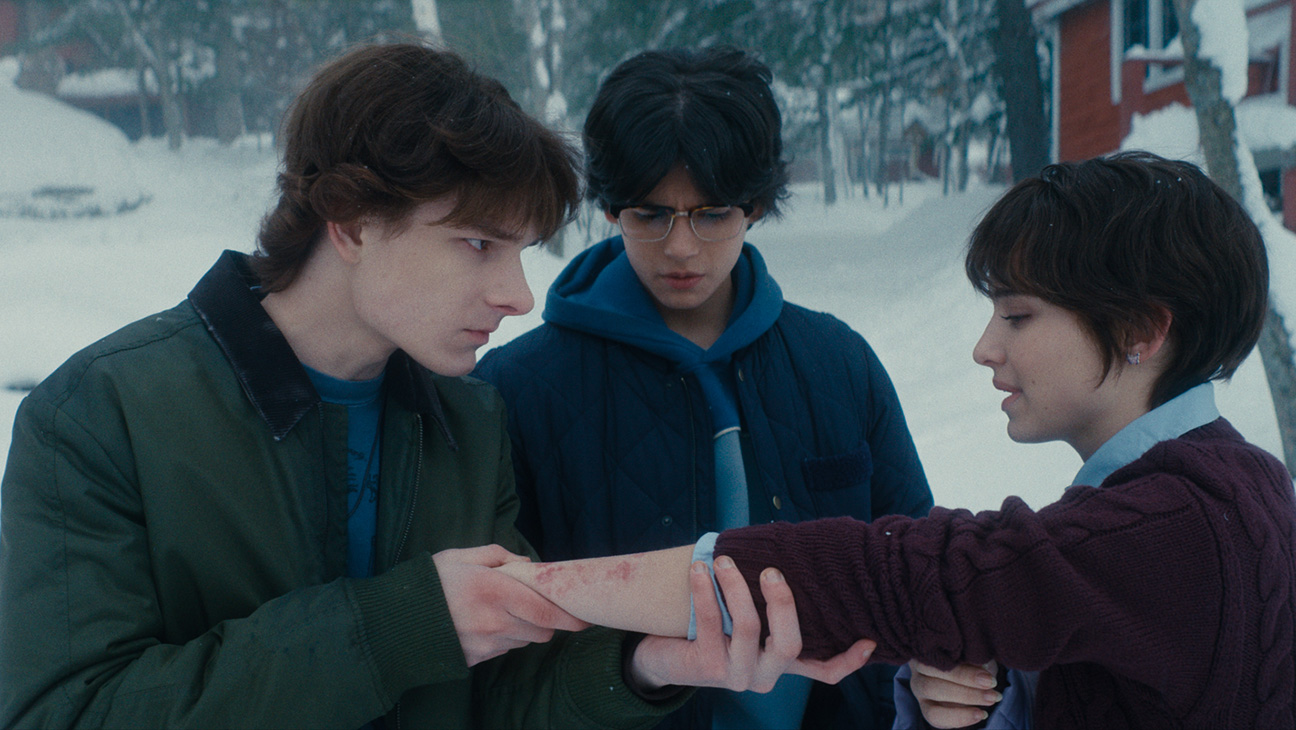
Mason’s How to Train Your Dragon director Dean DeBlois told me a story of how he was on his way to a casting session when he decided to watch The Black Phone on the plane. That’s when he saw Mason and knew he had to audition him. Were you proud to hear that your moviehelped Mason land Hiccup?
Oh yeah! I also sent Dean a pretty elaborate letter telling him he was out of his mind if he didn’t cast Mason. It’s hard to find kids who can do what Mason and Maddy do. They’re both very big emotional engines for being so young, and they have an innate emotional intelligence to understand the processing that a character goes through, beat for beat and scene for scene, in the course of making a movie. And it’s surprising how little direction either of them really need. They need to know the specifics of what I’m looking for in a scene, and sometimes it’s how emotional I want something to really go.
I’d give Maddy in particular a forewarning: “Hey, the scene that we’re shooting Thursday, I just want you to know you’re going to have to go to 11.” (Laughs.) So I would do things like that, but scene for scene, they’re so good at understanding what their character is thinking, feeling and experiencing on any given shot. And if something was off a little bit, I would just speak to both of them like adults, even when they were younger. I would say, “That’s close, but this is what you’re thinking. This is what you’re intending to do here.” Then they would immediately get it and nail it. So I’m very proud of having essentially discovered the two of them, and they’re both going to have amazing careers.
Black Phone 2 comments on what it truly means to be a Christian, not just say you’re a Christian, and Demián Bichir’s character was your way of illustrating that point. He was modeled after Christian camp counselors that had a positive impact on your teenage self?
Yeah, I went to these Christian winter camps that were very conservative and rooted in Southern Bible Belt Christianity. I take issue with a lot of the things that were preached and talked about, and I’ve since rejected it. But I had powerful experiences in those places, and a lot of that was due to these Mexican-American men who were primarily in charge of these camps. They were really instrumental in my life. In the North Denver neighborhood I grew up in, one half was white, and the other half was brown. So that was a big part of my experience growing up. And if I was going to take Finn and Gwen up into this blizzardly snowed-in hell camp, why not draw from my own experience and try to capture some of the decency and goodness of these people who were formative in my life?
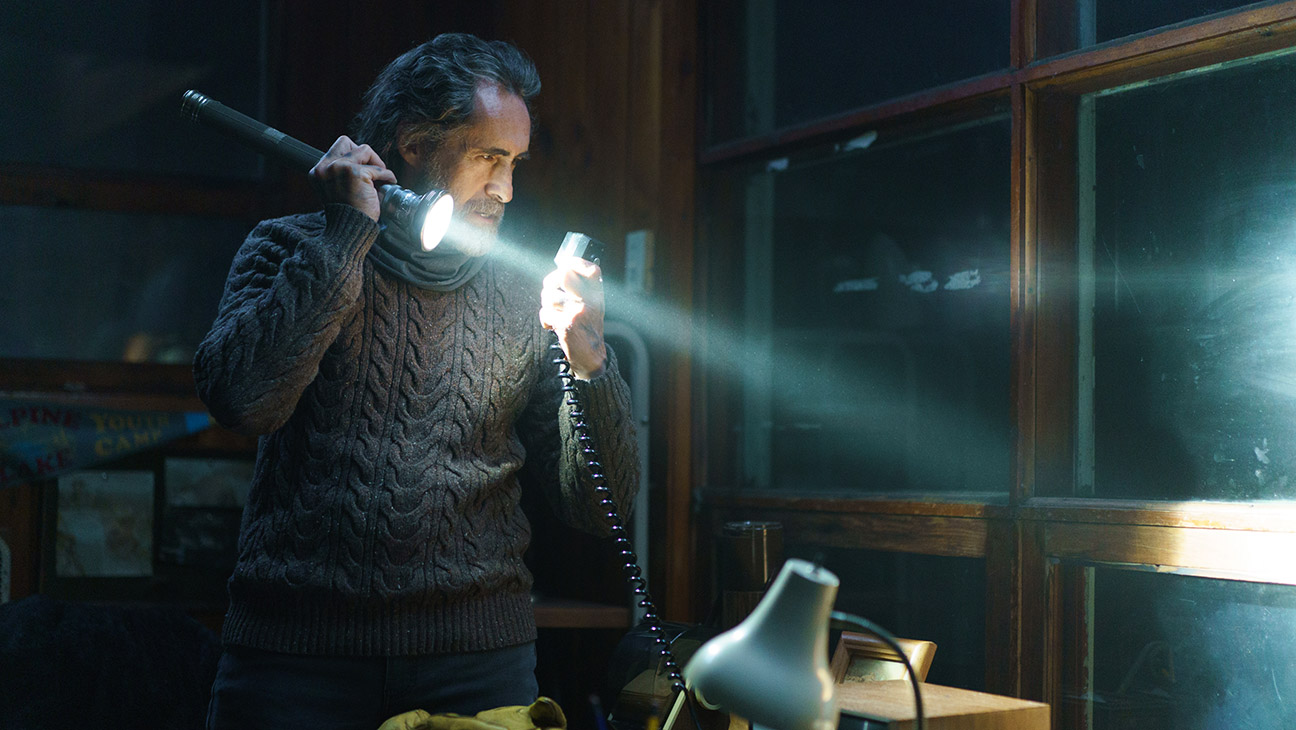
During The Gorge press, I asked you about your composer named Atticus (Ross), and now, I am once again asking you about your composer named Atticus (Derrickson).
(Laughs.)
When you approached your son about scoring Black Phone 2, was he gobsmacked since you’d just worked with arguably the industry’s two best composers in Reznor and Ross?
And they are probably his favorite composers. He was at Berklee College of Music in Boston, and he just felt like he wasn’t learning much, so he dropped out. But I knew how good he is, and as soon as he dropped out, I said, “Well, come score [Black Phone 2] for me.” And he was like, “Great.” He was pretty matter-of-fact about it, and he was up for the challenge. He didn’t really balk at any of it.
We were communicating a lot while I was working on TheGorge, and he saw the way that Reznor-Ross worked with me on that movie. So he just did the same thing, and he wrote a bunch of music ahead of time. And other than Reznor-Ross and my son, nobody else has done that [for me]. He gave me a list of seven or eight tracks that are now the key tracks in the movie.
The music was inspired by the script, and it was so scary. I was able to go, “Oh, this is perfect for this scene, and I’m going to use this here. And what about this scene? What if you change a little bit?” And probably four to five of the tracks [at that stage] are in the movie. There’s a lot of music in the movie.
And for the rest of it, he would just take the scenes and turn them in with score. I think there was only one scene that was a wholesale rejection. I was like, “This is a miss. You’ve got to give me something else.” But most of the time it was just a subtle change or trying to emphasize a hit in a certain place.
He was really into hip-hop as a teenager, and he was always writing and selling hip-hop beats. So he got such an education in the low end of music, and he really understands bass and percussion and the varieties of the low end’s sonic landscape, which is what this movie really called for. [Writer’s Note: I remember Derrickson tweeting many years ago about a hip-hop track his young son had just made on his computer, and it sounded like it was the first time he realized that he could be headed in this direction.]
The other thing about Atticus is that he’s probably the best film critic I know. He grew up watching way more movies than any normal kid does, because he is my son. Both my boys watched several movies a week growing up, and he just has such an astute, critical mind for how movies work and what makes a good movie. So I didn’t have to give him a lot of direction for any given scene. He was able to watch a cut and understand what it was and what it required. I gave him the same essential direction that I gave Reznor-Ross: “I don’t want you to reinforce the image. Give me a third thing. Give me something that’s not in the scene and adds more power.” Those are the scores that I love the most, and he did that in a big way.
The final scene is by far my favorite scene. To me, that is the movie. And Atticus’ cue underneath it all really brought it home.
I feel the same way. That cue is so impressive because it shows his range, and it is so different from the rest of the horror score. He gave it to me in pretty much the shape that you hear in the movie. I don’t know that I really re-edited anything after I’d seen it play. I just thought it was so perfect and so moving. That was his instinctive ability to understand what that scene is trying to do, and he added something to it that really helped it accomplish its goal.
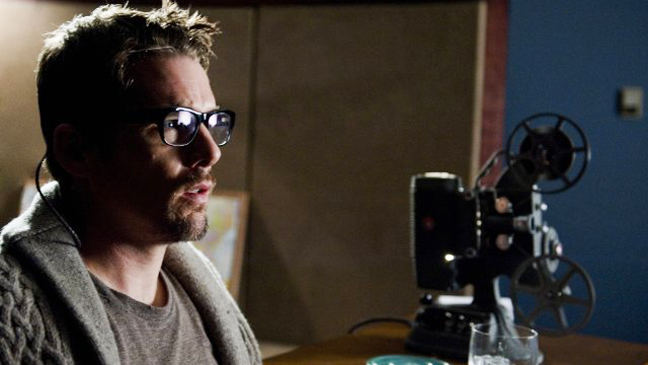
Lastly, whenever I see footage from Sinister, I always think that Ethan Hawke’s character looks exactly like you. Did Ethan turn Ellison into you? Or have you turned yourself into Ellison?
(Laughs.) No, it was Ethan turning himself into me. I knew something was up when we were rehearsing on set in prep. He came up to me and said, “I’m just curious. What brand of glasses do you wear?” And I was like, “Oh no.” (Laughs.) And sure enough! He even pulled at his beard the way that I do when I’m thinking, so he very conscientiously drew on me for that role.
***
Black Phone 2 is now playing in movie theaters.

